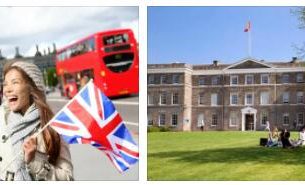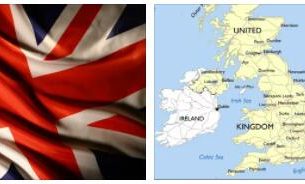Before departure
The preparation started for me around January 2017. The homepage of the university initially seems a bit confusing and requires some research time. You also had to wait a bit for replies to e-mails. However, after I submitted the documents, the application process went pretty quickly. I got the acceptance two weeks after applying in June and had plenty of time to plan my stay abroad. As a citizen of the European Union, I did not need a visa. I chose student accommodation on campus advertised and got them. I received the information about this together with the acceptance and the associated documents. Public transport in Colchester is not very good and reliable, so living on campus is highly recommended.
The studies
The academic year at the University of Essex is divided into three trimesters (Autumn, Spring, Summer) from October to July, each 10 to 11 weeks. Lectures are held in the Autumn Term and Spring Term. The Summer Term is only intended for exams. I have registered for seven business-oriented modules. I had to exchange two of them in the Autumn Term because the lecture times overlapped with other events. A module failed in Spring Term and also had to be replaced. Most lectures are practically oriented and include case studies, term papers, presentations and discussions. You have a much closer relationship with the professors than in Germany. The lecturers are always friendly and helpful. The university also offers many learning options such as study rooms, PCs, meeting rooms and learning pods.
The living
The cost of living such as rent, mobility, entertainment etc. are relatively high in my opinion. I lived with five other roommates on the Quays, where mostly only Masters or international students live. The area is therefore relatively quiet. That is why I would recommend accommodation in Quays to students who are more focused on their studies, who need peace and order, and who prefer intelligent roommates. Quays is not far from the campus as the crow flies, but you have a 15 to 20-minute walk because of the crossing of a less than ideal bridge. However, there is a bus stop right on the doorstep and the large Tesco supermarket can be reached in about 10 minutes on foot.
The small town of Colchester with around 120,000 residents unfortunately doesn’t offer too many opportunities to do something. The university, on the other hand, regularly organizes academic, professional and private events. In addition, students can take part in many different societies and various sports activities. In addition, the university is extremely diverse with almost 30% international students. The campus is large, clearly arranged and basically has everything you need in everyday life (convenience stores, banks, bars, clubs, post offices, canteens, restaurants, cafés, etc.)
The free time
In my spare time, I often went to the gym and took part in university soccer and tennis sessions. I was also involved in various associations such as Enactus. The university offers many opportunities to gain practical experience such as workshops and frontrunner placements for students. She also supports you in developing your own start-up or in applying for jobs. The Career Center gave me the opportunity to do an internship towards the end of my time abroad. I used this to gain practical experience abroad. I still had enough time to travel more often while studying. Around Colchester are beautiful cities like Cambridge, Clacton-on-Sea, Chelmsford etc., which are easily accessible.
According to Existingcountries.com, the university itself is a bit outside of the city center. You therefore spend more time on campus. The advantage of the location is that there is a train station from which you can go directly to London and other cities. A trip to London is a must for anyone studying here anyway. In the course of my studies, besides London, I visited big cities like Manchester, Liverpool, Edinburgh and Glasgow. Traveling in the UK is expensive, but booking your trips and accommodations early and in good time can make it far cheaper.
Conclusion
The report is a brief extract from my experience at the University of Essex. In general, I would say that you can only win if you have experience abroad. It was a very interesting and meaningful experience in Great Britain for me. I broadened my horizons a lot, developed myself a lot, made new acquaintances and made long-term friends. From a learning quality and support perspective, I would definitely recommend the University of Essex. I would also advise anyone who has the opportunity to live and work abroad to take advantage of it.




